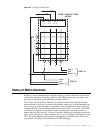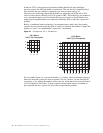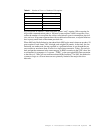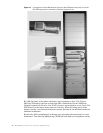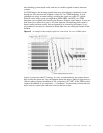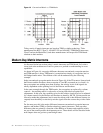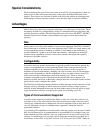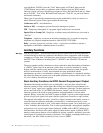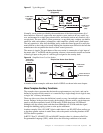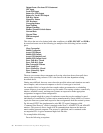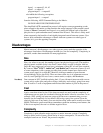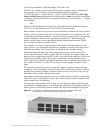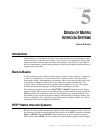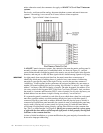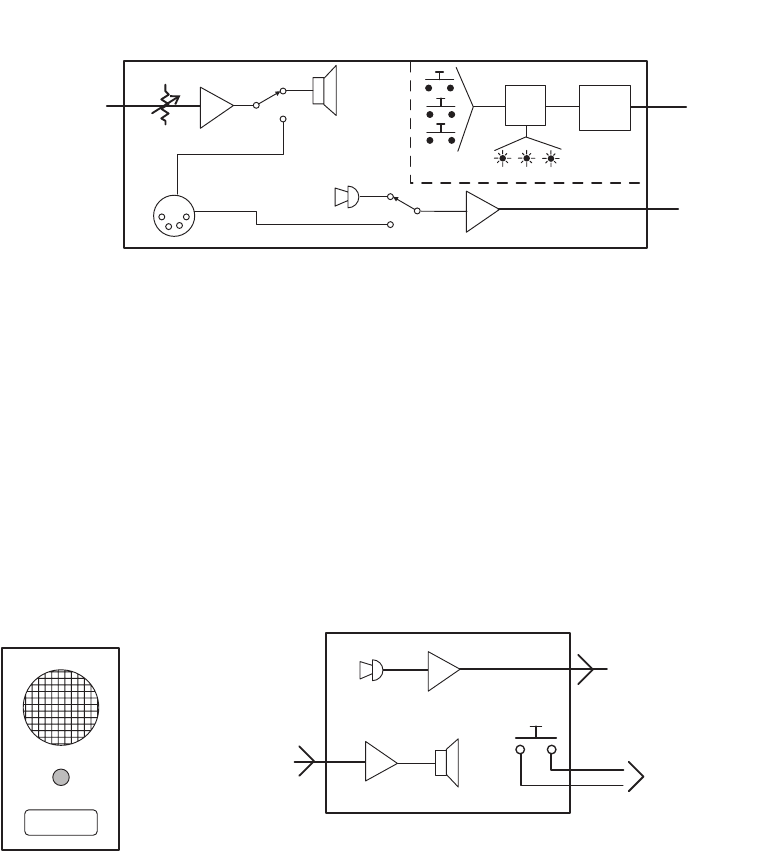
Chapter 4 - Introduction to Matrix Intercom Systems 55
Figure 4.7
Typical Keypanel
Normally, a user station provided by the manufacturer of the intercom performs all of
these functions. However, suppose the user requires a user station to be very small, low
cost, and mounted in a single gang electrical box, and that the station only needs to call a
security desk. The user, dealer, system contractor, or any third party company can build a
small box with a microphone, preamplifier, audio amplifier, speaker, and a push button.
The only question is, how does the builder easily create the control protocol to notify the
matrix that he or she wishes to be heard? Making the situation more difficult is the fact that
manufacturers do not publish the details of their control protocols.
The answer is simple. The push button of the user station is connected to a logic input of
the matrix (the “I” in GPI/O) and the operating software is instructed to treat the activation
of that logic input as the press of a talk key pre-assigned to the security desk.
Figure 4.8
Simplified Low-Cost User Station
A number of other examples with more detail of GPI/O are shown in the next chapter.
More Complex Ancillary Functions
The examples above presume that the interface requirements are very basic, and can be
defined as an action which controls or is controlled by a single change in one logical state,
a single “bit” of binary information.
There are often cases where the definition is nearly as easy, but multiple conditions must
be met. Perhaps, in the previous security desk example, the user needs a certain intercom
panel to call the receptionist from 8:30 AM until 4:30 PM, then from 4:30 PM until
midnight calls the security desk, and then from Midnight to 8:30 AM sends the signal
through the building paging system to wake up the watchman.
Another example, if the “ON AIR” light in studio three is on, DO NOT allow audio to go
to the three speaker stations in studio three, unless the panels are feeding headsets AND
NOT the built in speakers.
In RTS™ Zeus™, ADAM™-CS and ADAM™ matrices there is a feature called User
Programmable Language (UPL), which allows the following conditions to be tested:
+ 8 dBu Audio
From Matrix
(Listen)
Speaker
Typical User Station
(Keypanel)
+ 8 dBu Audio
To Matrix
(Talk)
Rs485 Data
To Matrix
Headset
Switches
Indicators
Serial
Data
Microphone
CPU
Speaker
Simple One Button User Station
+ 8 dBu Audio
To Matrix
Microphone
+ 8 dBu Audio
From Matrix
Contact Closure to
Matrix GPI Input
CALL
Switch
CALL
Speaker
MIC
Single Gang
Electrical Box
“Vertical”



